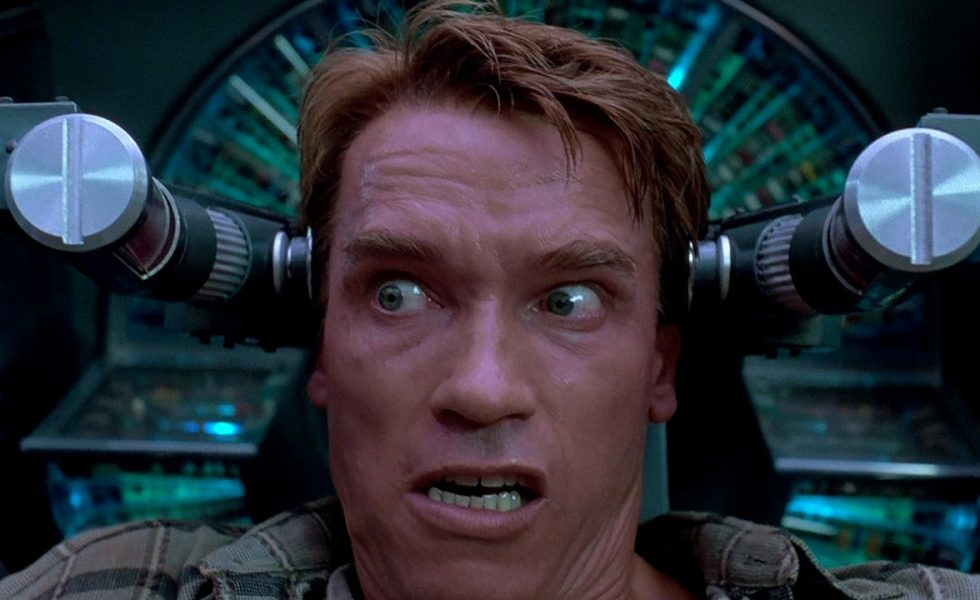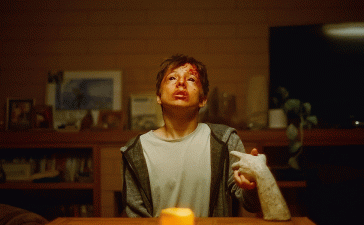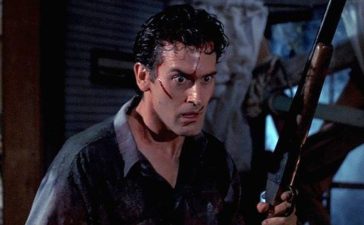For a while there, against all odds, manic Dutch provocateur Paul Verhoeven was handed they keys to the kingdom of Hollywood.
It’s difficult to imagine anything remotely similar happening now. Verhoeven came boiling up out of the Netherlands following a string of transgressive, sexually explicit, and controversial movies like 1973’s Turkish Delight and 1980’s Spetters and, having pretty much burned his bridges with Dutch funding bodies, decamped for the U.S., where he overcame his initial disdain for what he considered a stupid title to make the stone cold cyberpunk classic, Robocop (1987).
For what could have been – and in different hands, would have been – a cheap genre schlocker, Robocop was a smash hit. Like 1984’s The Terminator, it transcended its budget and perceived box office destiny, raking in big bank, indelibly putting its stamp on the pop culture firmament, and launching an ill-advised franchise.
Nobody was more surprised than Verhoeven, who had chafed under censorship restrictions that forced him to cut some of the more extreme violence from the film (the difference between the OG release and the Director’s Cut is profound). For his next Hollywood at-bat, he decided to pull out all the stops, teaming with the biggest action star in the world to make the most violent blockbuster imaginable. And that, folks, is how we got Total Recall.
Do You Like Dick?
An adaptation of sci-fi author Philip K. Dick’s 1966 short story, “We Can Remember It For You Wholesale”, had been in the works for ages. Dick, the author of Do Androids Dream of Electric Sheep (filmed as Blade Runner), “Minority Report”, and A Scanner Darkly, trucked in stories set in multiple levels of reality and possibility, with protagonists frequently in doubt of their own identities and person-hood.
In the broad strokes, Verhoeven’s Total Recall fits that bill. Arnold Schwarzenegger, nearing the zenith of his absolute Arnieness, is Douglas Quaid, a lowly construction worker who has recurring dreams visiting Mars. Too skint to make the flight himself, he pays a visit to Rekall, a company that implants fake memories of interplanetary travel. The twist is that Quaid has already had fake memories planted in his brain – his entire personality is an artificial construct, and he is really Carl Hauser, a secret agent who finds himself betrayed and on the run. Before long he’s on the red planet, dodging his traitorous wife, Lori (Sharon Stone) and dead-eyed villain Richter (the great Michael Ironside) and unravelling the mystery of his own existence.
Get Your Ass To Mars
…and killing an awful lot of people along the way. There was always the possibility that a more cerebral and self-serious version of Total Recall would eventuate – at one point Canadian body horror auteur David Cronenberg was attached to direct with William Hurt in the lead role, which evokes a tone considerably far from the garish, bombastic actioner that eventually emerged. Simply casting Arnie in the lead role makes the whole thing absurd. The very idea that the Austrian Oak could be an everyman caught up in a conspiracy beyond his imagining is ridiculous – he’s an ubermensch among mortals from the get-go.
Verhoeven’s film is a brutal cartoon, owing as much to European comics like Heavy Metal and 2000 A.D. as Dick. Arnie-as-Quaid punches, shoots, and maims his way across tow planets and multiple pitched battles, blowing great bloody holes in the legion of antagonists sent after him. At one point a villain is skewered with a mining drill; at another a baddie has his limbs shorn off, dropping him down an elevator shaft. It’s all as grotesque and confronting as possible but mounted with a kind of adolescent glee.
Which is the point – Verhoeven understood, even if the American censors didn’t, that it’s not what you show, but the way you show it – a hole being blown clean through a head can be a visceral thrill, while an off-screen murder can be devastatingly disturbing. Total Recall revels in the former, offering up a full suite of murders and mutilations for us to enjoy.
The film’s science fiction elements are all rigged to catch the same wild, anarchic wind, with the aim being not to explore concrete speculative ideas, but rather the boundaries of the bodily form and good taste. The highlights of the film are all bizarre moments of caricature: Arnie gouging a comically oversized electronic bug out of his distended nostril; a fat woman’s head disassembling itself to reveal our grimacing hero hiding inside; mutant resistance leader Kuato is revealed to be a particularly gruesome kind of conjoined twin; characters exposed to Mars’ hostile atmosphere swell and burst like toads on a hot tarmac. You can imagine Verhoeven’s growing glee as each gag was developed, marvelling at how close to – or past – the edge of allowable excess he could get.
Identity, Free Will, and the Exercise of Power
But not for no good reason. Total Recall as a film and Verhoeven as a filmmaker both have serious thematic concerns, beyond the simple, iconoclastic joy of throwing as much blood and boobs at the screen as they could get away with (for all Arnie’s considerable presence, Total Recall’s defining image is surely the triple-breasted prostitute we meet in the Martian slum of Venusville).
Interestingly, Verhoeven has little concern for the most explicitly Dickian elements in play. The film’s big reveal that Hauser, Arnie’s original personality, is a villain in league with evil Martian colonial administrator Cohaagen (Ronny Cox), and that Quaid is just a cover identity is really given short shrift; Quaid takes the notion that his whole life is a lie in his stride, not even hesitating before blowing away the duplicitous Lori, who is revealed to be another Cohaagen agent (“Consider that a divorce!” he quips in fine Arnie style). The notions of personhood and subjective reality, core to almost every major Dick work, are blithely picked up and dropped in Total Recall.
No, what Verhoeven is really keen on is an examination of the exercise of power, and how fascist systems set their boots on the faces of the people – hardly surprising concerns for a man whose formative years were spent under Nazi occupation in Holland. Total Recall is the middle part of a thematically unified sci-fi trilogy, bookended by Robocop and 1997’s Starship Troopers, an overtly fascist take on Robert Heinlein’s lowkey fascist novel.
Total Recall doesn’t go as far as either of its trilogy-mates – the cheerful, satirical military propaganda of Starship Troopers is a high watermark of black comedy – but it does posit an armed struggle between downtrodden mutants and arch-capitalist Cohaagen, a resource company exec effectively running a company town like his private fiefdom. The big irony of Total Recall isn’t Quaid’s identity, but the fact that Cohaagen’s miners have uncovered an ancient alien atmosphere generator that could make the Martian atmosphere breathable – but it’s more profitable to keep the proles paying an oxygen tax so they can breathe company air instead. The righteous resistance are branded terrorists by the company-controlled media – media manipulation being another theme common across the Robocop/Recall/Troopers sequence.
Look, it’s not that subtle but then, isn’t it weird how the blunt sci-fi satire of the ‘80s and ‘90s seems remarkably prescient in this grim year of 2020? There was a time when Total Recall and Demolition Man and The Running Man and Escape from L.A. all looked to be wildly OTT stabs in the dark future, but now? Maybe we didn’t get Martian colonies and psychic mutants and memory implants, but we got invasive media, militarized police, corporate malfeasance, ecological vandalism, and a rapidly growing underclass. In terms of technology, most sci-fi flicks wind up way off base but, culturally and politically, it’s the tongue-in-cheek cynical satires that were on the money more than any of the more self-serious genre offerings.










